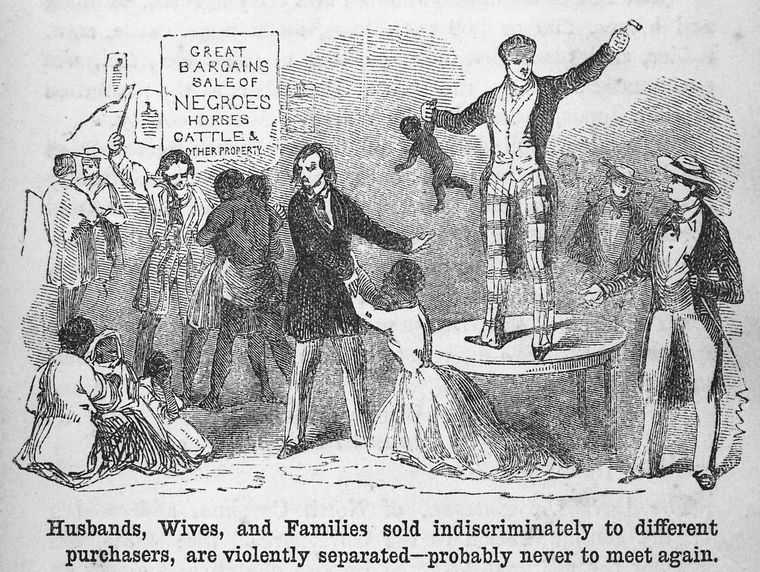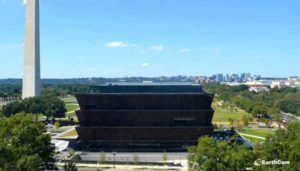
WASHINGTON — The Smithsonian Museum of African American History opened its doors to the public on Saturday, taking visitors on a journey through America’s past from its struggles with the national sin of slavery and segregation to the days when blacks were finally recognized as being equal to whites.
The 400,000 square foot museum was first proposed in 1915 by African American veterans of the civil war, and in 2003, its creation was approved by Congress, putting in motion a 13-year effort to tell America’s story through the eyes of its black citizens.
The $540 million facility features over 36,000 donated artifacts, including items used to buy slaves, a sample segregated railway car, and the shawl of underground railroad hero Harriet Tubman, as well as items surrounding contributions blacks have made to America’s history.
The lower floors of the museum tell the story of the nation’s stain of slavery and segregation from its early years to the 1950’s, while the upper levels provide more light-hearted examples of black celebrities in modern America.
Director Lonnie Bunch told NPR that the museum serve to “remember not just the well-known, but also those famous only to their families, whose lives in quiet ways shaped this nation.”
“We remember so we can ponder the pain of slavery, segregation and second-class citizenry, but we also find the resiliency, the faith, the hope, the joy that is so much a part of the African-American community,” she said.
Passes for the opening weekend of the Museum of African American history sold out, and approximately 7,000 people were in attendance for the grand opening ceremony on Saturday. Barack Obama and George W. Bush were among those who spoke during the event.
“A great nation does not hide its history. It faces its flaws, and corrects them,” Bush said. “This museum tells the truth that a country founded on the promise of liberty held millions in chains, that the price of our union was America’s original sin. From the beginning some spoke to truth. John Adams called slavery an evil of colossal magnitude.”
“Their voices were not heeded and often not heard, but they were known to a power greater than any on earth—One who loves His children and meant them to be free,” he stated.
 Obama told those gathered, “African American history is not somehow separate than the American story. It is not the underside of the American story. It is central to the American story.”
Obama told those gathered, “African American history is not somehow separate than the American story. It is not the underside of the American story. It is central to the American story.”
“The very fact of this day does not prove that America is perfect, but it does validate the ideas of our founding—that this country born of change, of revolution, of we the people, that this country can get better,” he said.
According to the Spurgeon Center in Kansas City, Missouri, slave owners and others, particularly in the South, openly burned the sermons of well-known preacher Charles Spurgeon in the 1800’s and threatened to kill him due to his rebuke of the sin of slavery.
“Spurgeon’s character was assassinated throughout the Confederacy. His sermons, which in 1862-1863 sold one million copies annually, were censured. His books, which sold 1,000 copies per minute at trade shows, were publicly destroyed. Sermon bonfires illuminated jail yards, plantations, and bookshops throughout the Southern states,” it outlines.
“I do from my inmost soul detest slavery … and although I commune at the Lord’s table with men of all creeds, yet with a slave-holder I have no fellowship of any sort or kind. Whenever one has called upon me, I have considered it my duty to express my detestation of his wickedness, and I would as soon think of receiving a murderer into my church … as a man stealer,” Spurgeon once said.
“[I]t was God that gave an Abraham Lincoln, who led the nation onward till ‘Emancipation’ flamed upon its banners.”
But slavery also existed in the North, as the site Slavery in the North explains, “Slaves were auctioned openly in the Market House of Philadelphia; in the shadow of Congregational churches in Rhode Island; in Boston taverns and warehouses; and weekly, sometimes daily, in Merchant’s Coffee House of New York. ”
While a number of the Founding Fathers owned slaves (some of them being said as treating their slaves kindly), others eventually became supportive of abolitionist efforts, including Statesmen Alexander Hamilton and Benjamin Franklin, as well as the first U.S. Supreme Court Justice John Jay.
Become a Christian News Network Supporter...


